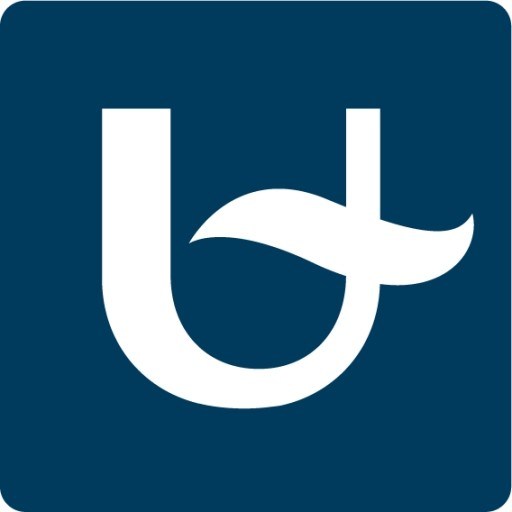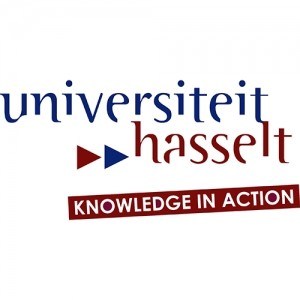Photos of university / #uantwerpen
The Master's in Governance and Development at the University of Antwerp offers a comprehensive and interdisciplinary curriculum designed to prepare students for effective leadership and strategic decision-making in complex governance contexts. This program combines theoretical insights with practical skills, focusing on contemporary issues such as sustainable development, public policy, institutional change, and global governance. Students will explore the intricate relationships between politics, economics, and society, gaining a deep understanding of how governance processes impact development outcomes. The program emphasizes critical thinking, analytical skills, and ethical considerations, enabling graduates to address challenges faced by governments, international organizations, NGOs, and the private sector. Through a combination of lectures, case studies, research projects, and fieldwork, students will develop a nuanced perspective on how governance structures influence development and social equity. The curriculum is designed to foster skills in policy analysis, stakeholder engagement, and strategic planning, ensuring graduates are well-equipped to contribute to effective governance practices across local, national, and international levels. The program also offers opportunities for specialization in areas such as public administration, international development, or environmental governance, allowing students to tailor their education to their career aspirations. Collaborating with leading academics and practitioners, students will benefit from a vibrant academic environment and extensive professional networks. Upon completion, graduates will be prepared for careers in policy analysis, development cooperation, government agencies, international organizations, or academia. They will possess the knowledge and skills necessary to promote good governance, sustainable development, and social justice in diverse contexts worldwide. The University of Antwerp's Master's in Governance and Development is designed to equip future leaders with the competencies needed to navigate and positively influence the complex landscape of global development and governance challenges.
Governance, Peace and Conflict (Track 1)
The track ‘Governance, Peace and Conflict’ focuses on the actors and factors involved in the governance dimensions of development within the contexts of conflict-prone environments and states that are facing a multitude of reconstruction challenges following violent conflict. The track offers theoretical and contextualised insight into the political economy of governance and development, focusing on the state as a central actor in the development process of a nation. The track also explores critical dimensions, drivers and dynamics of violent conflict, processes of peace and conflict resolution and post-conflict state reconstruction. It adopts a thematic perspective, supplemented by in-depth case studies drawn mainly from Sub- Saharan Africa. Students receive analytical and policy-oriented tools for carrying out knowledge-based interventions, particularly in environments affected by conflict.
This track is intended for participants with a variety of disciplinary backgrounds who are professionally active or aspire to careers in conflict-prone environments or post-conflict situations or who are interested in policy-oriented research on these topics. Participants should have work experience or academic interest in the public action domain, whether within government institutions (including public research institutions), donor agencies (including international nongovernmental organisations, bilateral and multilateral donors) or civil society (including advocacy groups, research institutes and universities).
Local Governance and Poverty Reduction (Track 2)
The track ‘Local Governance and Poverty Reduction’ focuses on the interaction between transnational, national and local actors in governance processes. Decentralisation has become an important part of the agenda for governance reform and democratisation in many countries. For this reason, it is hardly possible to discuss issues of public-service provision and property rights without due consideration for local-level institutions and political dynamics. The partial autonomy of local decision-making levels is an integral part of countries that are characterised by weak or fragile national-level state structures. It therefore requires careful scrutiny in the conceptualisation and assessment of development initiatives. Special attention is also paid to the dynamics of poverty and the politics of poverty reduction.
The track is intended for participants who are professionally active or interested in research on the interface between the transnational, national and local level and/or between state and non-state development actors. Students should have work experience, academic interest or aspire to a career in the public action domain, whether within government institutions (including public research institutions), donor agencies (including international NGOs, bilateral and multilateral donors) or civil society (including research institutes, universities).
Requirements
- Applicants must hold a Master's degree in Social Sciences (Economics, Political Science, Sociology, International Relations, or related disciplines), with good study results. Applicants with a Bachelor's degree of four years of study can be admitted, provided they have attended additional courses/trainings and/or hold relevant professional experience. Applicants with only a Bachelor’s degree of three years of study will not be admitted to the Master programmes.
- TOEFL (Test of English as a Foreign Language): minimum score of 550 for the paper-based test or 79 for the Internet-based test. Information about this test is available at the TOEFL-website. IOB does not accept the TOEFL ITP.
- IELTS (International English Language Testing System): minimum score of 6.5 and a minimum score of 6.0 on each component. Information about this test is available at the IELTS-website.
- A copy of your valid passport or identity card/a curriculum vitae
- A motivation letter
- A legalised copy of your degree certificate (please read more information on legalisation)
- Applicants that are enrolled in the final year should submit an original and signed letter from their college or university confirming that they are expected to finalise the program at the end of the current academic year
- A copy of your academic transcripts, provided with a stamp of the university
Scholarships
- VLIR-UOS: scholarships for students from developing countries: Scholarships are available for students from 54 scholarship countries in Africa, Asia and Latin-America to follow a training or master programme at the University of Antwerp.
- ASEM-DUO: Scholarships are available for students from China, India, South-Korea and Vietnam.
- Transition Fellowship Programme: Scholarships are available for students from 4 countries in transition (Brazil, Morocco, South Africa and Turkey).
- Mastermind: Scholarships are available for international students who want to take up a master degree programme.
- Global Study Awards: An individual global study award with a maximum value of £10000
The Governance and Development master's program at the University of Antwerp is designed to prepare students for effective participation in global and local governance processes, emphasizing sustainable development, policy analysis, and institutional management. This interdisciplinary program combines insights from political science, economics, sociology, and environmental studies to provide a comprehensive understanding of governance issues in diverse contexts. students will explore the principles of good governance, the role of institutions, policymaking processes, and the impact of development strategies on various societal groups. The curriculum integrates both theoretical frameworks and practical skills, equipping graduates to analyze complex governance challenges, develop innovative solutions, and implement policy interventions effectively.
Courses include modules on international development policies, governance theories, public administration, human rights, conflict resolution, and sustainable development. Through a combination of lectures, case studies, group projects, and internships, students gain hands-on experience and develop critical thinking skills essential for careers in government agencies, international organizations, NGOs, and research institutions. The program emphasizes a multidisciplinary approach, fostering an understanding of social, political, economic, and environmental factors that influence development and governance processes.
The University of Antwerp offers a vibrant academic environment with opportunities for international exchange, research collaboration, and involvement in community outreach activities. The faculty comprises experts in governance, development, and related fields, ensuring that students receive guidance rooted in current research and global best practices. Graduates of the program are well-equipped to pursue careers in policy analysis, project management, diplomatic services, research, and consultancy roles focused on fostering sustainable development and improving governance systems worldwide. The program’s objective is to cultivate responsible global citizens capable of addressing complex development challenges through innovative, inclusive, and ethically grounded solutions.



